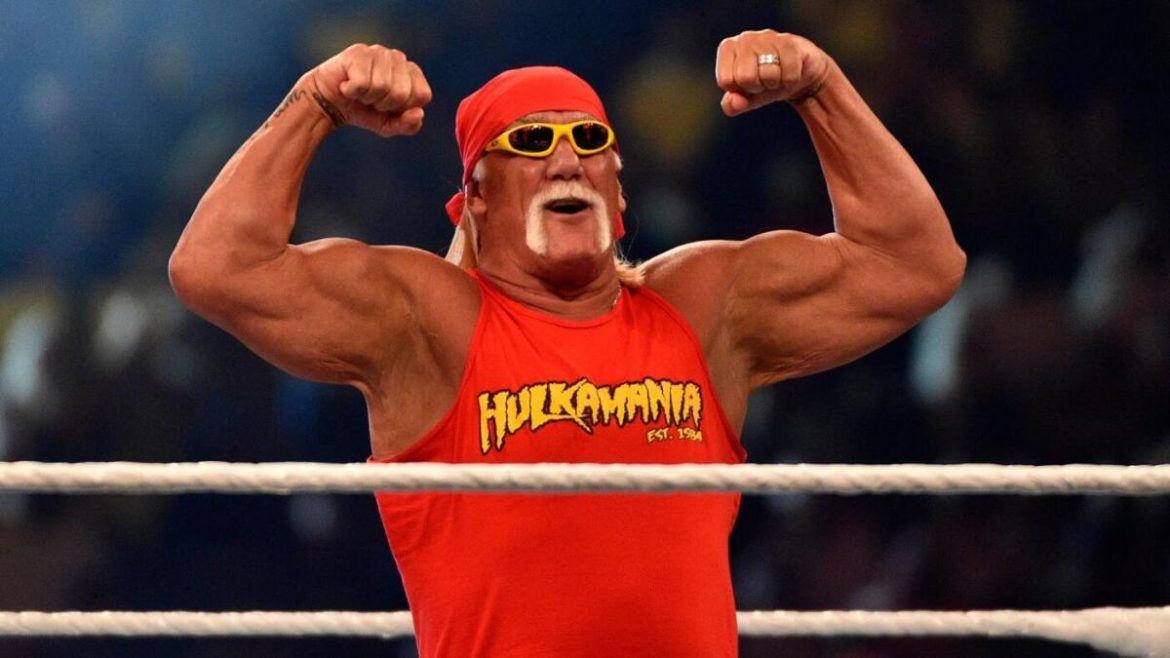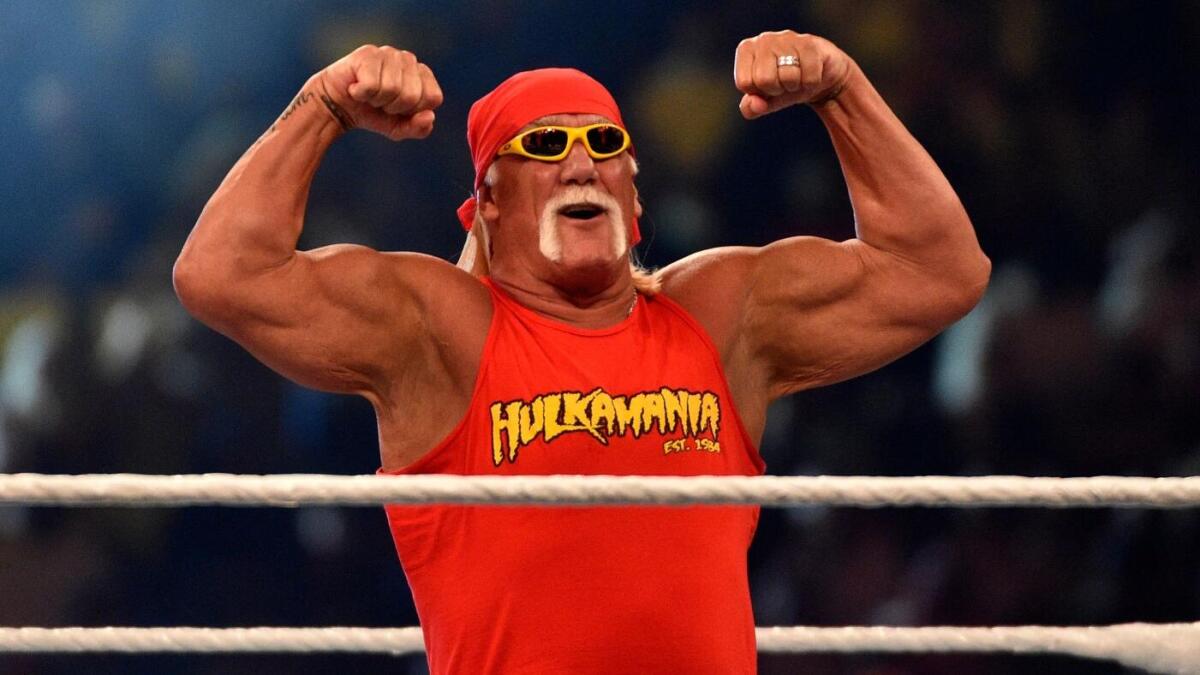The Passing of a Legend: A Look at Hulk Hogan’s Impact and Legacy
The Hulkamania Phenomenon: A Cultural Revolution
The wrestling world has lost one of its brightest stars with the passing of Hulk Hogan at the age of 71. The news of his death, following a cardiac arrest at his Florida home, has sent shockwaves through the industry and beyond. Hogan’s influence stretched far beyond the wrestling ring, making him a global icon whose legacy will endure for generations. Born Terry Eugene Bollea, Hogan transformed into a larger-than-life character that captivated audiences worldwide. His persona, defined by red and yellow attire, an unmistakable mustache, and an unshakable sense of heroism, became synonymous with the golden age of professional wrestling.
Hogan’s rise to fame in the 1980s was nothing short of meteoric. His character, a muscle-bound hero with a heart of gold, resonated deeply with fans. The “Hulkamania” movement he spearheaded was more than just a wrestling gimmick; it was a cultural phenomenon. Hogan’s catchphrases, such as “Whatcha gonna do, brother, when Hulkamania runs wild on you?” became part of the collective consciousness. His matches were spectacles, featuring dramatic comebacks and signature moves like the running leg drop. Hogan’s feuds with legends like “Rowdy” Roddy Piper, Andre the Giant, and “Macho Man” Randy Savage were must-see events that helped propel wrestling into the mainstream.
The Monday Night Wars: A Shift in the Wrestling Landscape
The mid-1990s marked a significant turning point in Hogan’s career and the wrestling industry as a whole. His controversial move to World Championship Wrestling (WCW) from WWE (then WWF) was a bold step that had far-reaching consequences. Hogan’s arrival in WCW, alongside other former WWE stars, ignited the infamous “Monday Night Wars.” This ratings battle between WWE’s Monday Night Raw and WCW’s Monday Nitro captivated audiences and reshaped the wrestling landscape.
In WCW, Hogan underwent a dramatic transformation, shedding his hero persona to become a villain. He formed the New World Order (nWo) with Kevin Nash and Scott Hall, a rebellious group that took over WCW. The nWo storyline was a massive success, injecting a dose of realism and edginess into professional wrestling. Hogan’s ability to evolve and adapt to the changing times demonstrated his versatility as a performer. The nWo storyline not only revitalized Hogan’s career but also helped WCW surpass WWE in the ratings for a period, marking a significant shift in the wrestling power dynamics.
Controversies and Redemption: A Complex Legacy
Hogan’s career was not without its controversies. His in-ring style, often criticized for its predictability, and his backstage politics drew scrutiny. However, the most significant controversy of his life emerged later when a video surfaced containing racist remarks. The fallout was immediate and severe. Hogan was removed from the WWE Hall of Fame, and public condemnation followed. This period marked a low point in his career and personal life.
Yet, Hogan’s story is one of redemption. He issued a public apology and worked tirelessly to atone for his actions. His efforts were recognized when WWE reinstated him into the Hall of Fame in 2018. This gesture acknowledged his contributions to the company and the wrestling industry, highlighting the complex nature of his legacy. Hogan’s journey from a celebrated hero to a controversial figure and his subsequent redemption offers a nuanced portrait of a man who lived his life in the public eye.
Tributes and Reactions: An Industry in Mourning
The news of Hogan’s death has prompted an outpouring of tributes from across the wrestling world and beyond. Fellow wrestlers, including Ric Flair, Triple H, and Jake Roberts, have shared emotional messages, praising Hogan’s contributions to the industry and expressing their condolences to his family. Ric Flair, a longtime rival and friend, shared a touching message, acknowledging Hogan’s impact on his career and the wrestling industry. Many others echoed this sentiment, highlighting Hogan’s charisma, his ability to connect with fans, and his role in popularizing professional wrestling.
WWE issued a statement acknowledging Hogan’s passing and celebrating his career achievements. The company recognized Hogan as one of the most recognizable and influential figures in wrestling history. The reaction to Hogan’s death underscores the profound impact he had on the wrestling industry and popular culture. His name is synonymous with professional wrestling, and his legacy will continue to inspire future generations of performers.
A Lasting Legacy: More Than Just a Wrestler
Hulk Hogan was more than just a wrestler. He was a cultural phenomenon, a symbol of American strength and charisma. His influence extended beyond the wrestling ring, shaping popular culture and inspiring countless individuals. His character, Hulk Hogan, represented the embodiment of the American dream—a hardworking, determined individual who overcame adversity to achieve success. His message of positivity, hard work, and believing in oneself resonated with audiences of all ages and backgrounds.
Hogan’s legacy will continue to live on through his matches, his movies, and the countless memories he created for fans around the world. He will be remembered as one of the greatest and most influential figures in the history of professional wrestling. His impact on the industry is immeasurable, and his contributions will be celebrated for years to come.
The Final Leg Drop: An End of an Era
Hulk Hogan’s death marks the end of an era in professional wrestling. He was the face of the industry during its most popular period, and his impact will be felt for generations to come. While his life was not without its controversies, his contributions to the world of sports entertainment are undeniable. Hulk Hogan’s name will forever be etched in the annals of wrestling history as a true icon and a legend. Rest in peace, Hulk.





